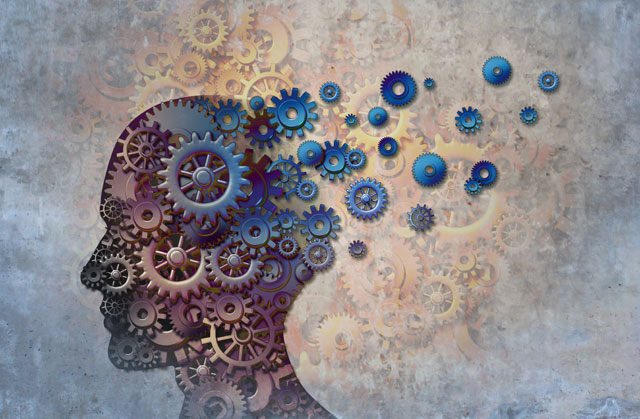Course Description
In an era where the nuances of child development are gaining increasing attention, understanding child psychology becomes paramount. This course offers a deep dive into the methodologies, theories, and pivotal concepts leveraged by experts to gain comprehensive insights into a child's universe.
The significance of child psychology extends beyond academic interest. It's foundational in discerning and establishing developmental norms, which play a pivotal role in influencing effective parenting strategies, pedagogical methods, and communication techniques.
One of the fascinating revelations of child psychology is the inherent difference in how children perceive, process, and react to situations compared to adults. Their cognitive, emotional, and reasoning faculties are in stages of growth, making their interactions with the world unique. For instance, consider a traumatic event like the loss of a pet. While an adult might process grief with a certain acceptance of life's realities, a child might manifest prolonged sadness, repeated questions about death, or even guilt, thinking they could have done something to prevent it.
The profound knowledge acquired from studying child psychology allows us to tailor our interactions to resonate with children's developmental stages, thereby fostering healthier, more constructive relationships. It aids in mitigating crises, enriching daily interactions, and positioning children for a well-rounded adulthood. Moreover, understanding child psychology is indispensable when advocating for children from challenging backgrounds or traumatic experiences.
This course, while academically rigorous, is designed to cater to a diverse audience. Whether you're a budding psychologist, a professional aiming to work with children, or someone simply intrigued by the intricacies of child development, this curriculum offers valuable insights.
Dive into Lesson 1: The Concept of Childhood, which sets the stage by delving into the historical and contemporary perspectives of childhood, juxtaposing how societal views have shifted over time.
Lesson 2: Early Biological Factors in Child Psychology offers an exploration of the genetic, hormonal, and neurological factors that influence a child's psyche from the earliest stages.
Venture into the Major Schools of Child Psychology in Lesson 3. Here, you'll trace the evolution of thought, understanding the foundational theories that have shaped our current knowledge.
Lessons 4 to 6 dissect seminal theories of cognitive and social development, from Piaget's groundbreaking insights into how children think and learn, to Vygotsky's emphasis on socio-cultural influences, and Erikson's illuminative stages of psychosocial growth.
Delving deeper, Lesson 7 centers on the mesmerizing journey of language acquisition, while Lesson 8's Nature versus Nurture debate offers a balanced view of this age-old discussion, fortified with modern research findings.
Lesson 9 emphasizes the pivotal role of family dynamics, illustrating how familial relationships mold a child's psychological framework. Moving into practical realms, Lesson 10: Applied Child Psychology showcases real-world applications of theoretical knowledge.
Concluding with Lesson 11, the course demystifies psychological testing tailored for children, emphasizing its significance in detecting developmental deviations and ensuring holistic growth.
You needn't be a seasoned scholar to engage with this course, but a curiosity about the intricate tapestry of child psychology will certainly enrich your experience. With no prerequisites, this course offers all resources, including lessons and netlinks, ensuring a seamless learning journey. Dive in, and unlock a world where you can make transformative differences in young lives.
- Completely Online
- Self-Paced
- Printable Lessons
- Full HD Video

- 6 Months to Complete
- 24/7 Availability
- Start Anytime
- PC & Mac Compatible
- Android & iOS Friendly
- Accredited CEUs

Learning Outcomes
- Define what child psychology is.
- Recognize early biological factors in child psychology.
- Describe the major schools of child psychology.
- Summarize Piaget's Theory of Cognitive Development.
- Summarize Vygotsky's Theory of Sociocognitive Development.
- Define Erikson's Eight Stages of Development.
- Describe the processes of the development of language.
- Define nurture.
- Summarize the affect of family dynamics on child psychology.
- Demonstrate mastery of lesson content at levels of 70% or higher.
Assessment Guide
| Assessment | Points |
|---|---|
| Lesson 1 Assignment | 2 points |
| Lesson 1 Exam | 18 points |
| Lesson 2 Exam | 17 points |
| Lesson 3 Exam | 13 points |
| Lesson 4 Exam | 22 points |
| Lesson 5 Exam | 16 points |
| Lesson 6 Exam | 18 points |
| Lesson 7 Exam | 19 points |
| Lesson 8 Exam | 18 points |
| Lesson 9 Exam | 21 points |
| Lesson 10 Exam | 16 points |
| Lesson 11 Exam | 11 points |



























